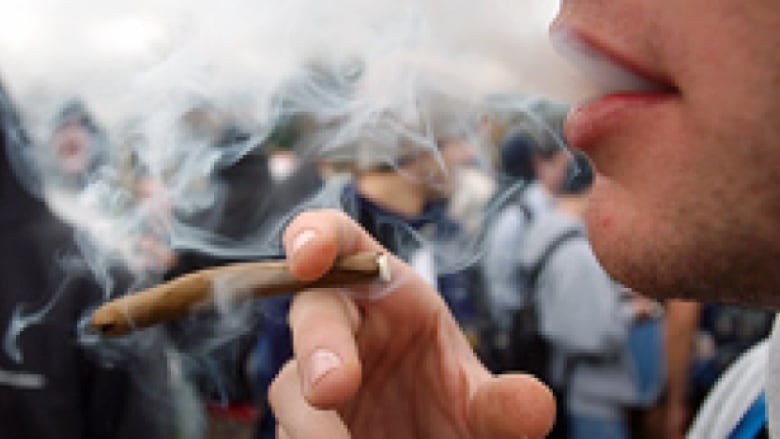We can't just hope our kids won't try drugs. We need to be open and honest with them on the issue
'Just say no' doesn't work. So, how can we teach our kids how to be safe?

This story is part of Amy Bell'sParental Guidancecolumn,which airs on CBCRadio One'sThe Early Edition.
With one child in high school and another nearly there, I'm certainly in the thick of things when it comes to them recognizing how real and prevalent drug use is.
My children see the impact of drug use in their daily lives. We interact with people in the grips of addiction on the streets. They hear news stories about how more than 9,000 lives were lost in the six years since B.C. declared a public health emergency due to overdose deaths.
And while neither of my children have had close friends overdose, my eldest does have peers who are grappling with addiction and a few who have lost their lives.
It's horrifying. Butas parents, we can't just pretend our children won't be exposed to drugs, or that they'll never have to make a choice about whether to take them.
So, what can we do?
Have honest, non-judgmental conversations
For one thing, talk to them. Then talk. And then talk some more.Not at some grand "family meeting" with a Power Point presentation titled "Just Say No."
Instead, try little snippets when the opportunity arises. Maybe a movie scene kicks it off; maybe you see someone on the street who is struggling with addiction.
Most importantly, giveyour child a safe space to talk about their feelingsand to ask questions. It means they'll be more open to you honestly discussing repercussions they might face if they choose to experiment with drugs.
Valerie Caldeira, a registered psychologist who specializes in treating youth, says we need to openly discuss all the ways drug experimentation or addiction can affectchildren.
"Discusshow it impacts decision-making and concentration and memory. Educatethem about how it impacts driving ability, school performance," Caldeira says.
"Ifyou have a teenager who is really dedicated to sports, letthem know how drug use can impact their ability to perform in a sport. We knowbrains are still developing until their mid-20s, so educatethem about that."
Show respect and compassion
But despite all the information and best intentions, some children,likely teens, will still experiment with drugs. Boredom, peer pressure and curiosity are among the many reasons why butit could be anxiety or depression.
Regardless, you need to make sure you aren't letting your own thoughts or fears of addiction get in the way of talking to your child.
Guy Felicella spent decades addicted to drugs, and now that he's cleanhe's dedicated to educating people about drug addictionsand safe supply. He's also a father of three young children who he wants to keep healthy and safe.
Felicella recommends setting the groundwork for open discussions early by always treating people who use drugs with respect, kindness and compassion.
"There's many different reasons why people use drugs. I think you have to find out the why before you start pointing fingers,before you start making comments," says Felicella.
If your child thinks your reaction will be one of anger or punishment, they will keep any drug use be it their first time trying pot at a party, or a serious addiction a secret from you.
"Oftentimes it's that first over-reaction towardyour child that could actually be detrimental in your relationship moving forward,"Felicella says.
'Just say no' justdoesn't work
We also need to change the way we view addiction. We haven't been successful in stamping out drug use or addiction in the past, so, obviously, that isn't working.
Schools could also play a role by teaching a history of drugs as part of its history lessons.
Students might then get a better understanding of the historical impact of drug use and addiction, and how past approaches such as jail time or zero tolerance have not helped addiction.
As Felicella explains, we can't rely on the past if we want a future where drugs and drug use aren't so lethal.
"We have to adapt to the reality of the world that's happening in front of us. We can't keep going with the same things from the 70s and the 80s. 'Just don't do them!' because that just doesn't work."
Examples of how we can adapt include advocatingfor safe supply and spaces for people to safely use drugs. We can also impress on our kids that if they choose to experiment they should never do so alone, and give them access to naloxone and teach them how to properly use it.
There is still a lot of shame and stigma around drugs and addiction and that is something we all need to dismantle. I'd like to say that my children will never try drugsand, if they do, it will be in a safe way that they'll openly discuss with me. I think most parents would like to say the same.
But the statistics say we can't all be that lucky, so we need to do whatever it takesto tip the odds in our favour.












_(720p).jpg)


 OFFICIAL HD MUSIC VIDEO.jpg)
.jpg)



























































































